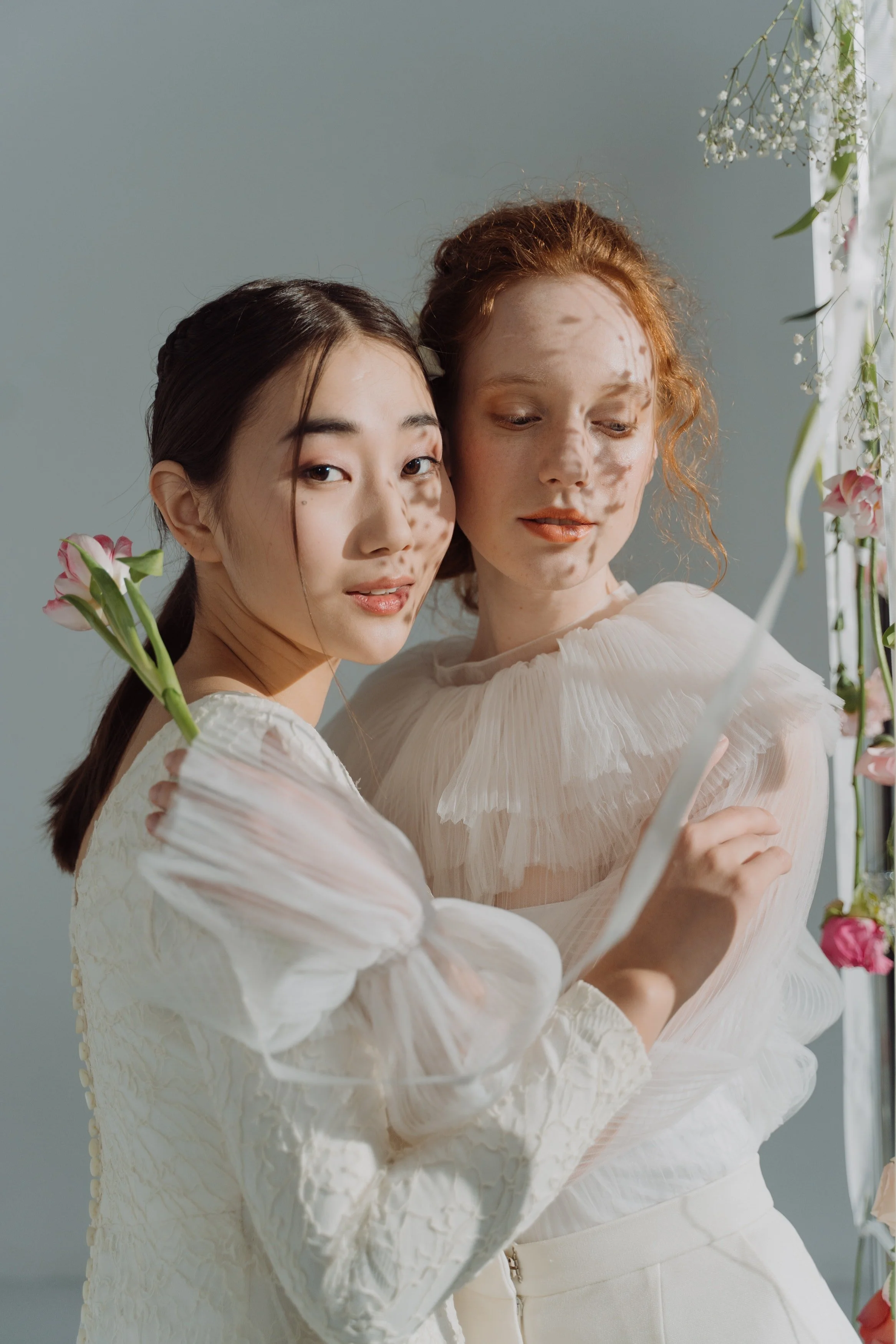‘Change the World Instead of Changing Who We’re With’: Learning to Embrace Life and Love as a Woman Loving a Woman
By Zahide Çam
Realising my sexual orientation took years. I was that one ‘ally’ who drew queer people in her sketchbook, who watched movies about LGBTQ+ couples, and who was dying to join a pride parade. I loved listening to ‘Girls & Boys’' by Jesse and ‘I Kissed a Girl’ by Katy Perry. When I was seventeen, I couldn’t deny the truth of my sexuality anymore: I was hopelessly in love with an openly lesbian girl. She was smart and beautiful. Who wouldn't fall for her?
At first, I tried to date a guy I wasn’t into, hoping that I would forget about the girl. I failed miserably. It did not make my love for the other girl disappear. Plus, I felt horrible for seeing him as a tool to prove my heterosexuality – which didn’t even exist – to myself.
When the girl and I were working on something after school, I asked her to come to the washroom with me. After watching her study, I knew I had to tell her, and I believed the washroom would be a good place to do so. That day, I realised no guy had the power to make me forget about her.
She came, and I told her that I might have a crush on her, but that I wasn’t sure because I had never had a crush on a girl before. She thought I was kidding, but luckily, she had feelings for me too. Many things happened that led us to start dating. Almost a month into the relationship, I told a close friend: ‘I don't think I am bisexual. I think she is an exception and will be my only girlfriend.’
I acknowledge that everyone’s experiences vary, but this was an obvious lie I told myself. I was just scared of being with a woman as a woman and facing challenges I didn't deserve to face. I freaked out and found comfort in denial. Today, when I look back at that time, I see why I was so freaked out.
There were many challenges to loving a woman as a woman. I couldn’t hold her hand everywhere. I couldn't introduce her to my family: I could lose certain people, or I could be rejected from some of the many communities I was in. With a man, my life would be like everyone else’s. Everything I had a chance to observe growing up – everything I am familiar with and not scared of – would be there.
All of it would be waiting for me, whether it was what I wanted or not: meeting with the families with no fear of being called ‘sinful’, expecting flowers on Valentine’s Day, holding hands whenever. The future would be easier to imagine and live too if I were with a man. Maybe my attitude toward my partner would be judged, but my love would remain dignified. I wouldn't need to justify why I love a man or prove that I am still a nice person with morals.
Ultimately, my girlfriend and I broke up, but that lesson remained with me. With the naiveté of loving a woman for the first time and little self-confidence and understanding of my sexual orientation, I wanted to make life easier for myself by being with a man. Yet, I didn’t realise it would only make life easier for others – for my family, friends, school, etc. – not for me. When I would force myself into a relationship with someone just because I believed their gender identity would make me less judged, it would make life harder for me by turning my home into a prison, my mouth into a liar, and my eyes into clouds full of rain.
Now, I have a girlfriend who is bisexual, and my biggest worry is that one day she will break up with me because, with a man, her life would be easier in many aspects. I am afraid because she might try what I tried. However, I am grateful for every day that she is with me and honours my gender identity, even though sometimes she has to face obstacles simply because she chose to be with a woman.
Neither of us likes to live in a world where every day we choose to stay together looks like a dystopia of ‘world’ versus ‘us’, but I am grateful that we choose to change the world instead of changing who we are with.
Zahide Çam (she/her) is a bisexual immigrant woman. Through various digital channels, she shares her understanding of gender inequity and social injustice from a queer and feminist point of view. Her goal is to ‘build bridges, not walls’. You can contact her via Instagram @zasiven.
